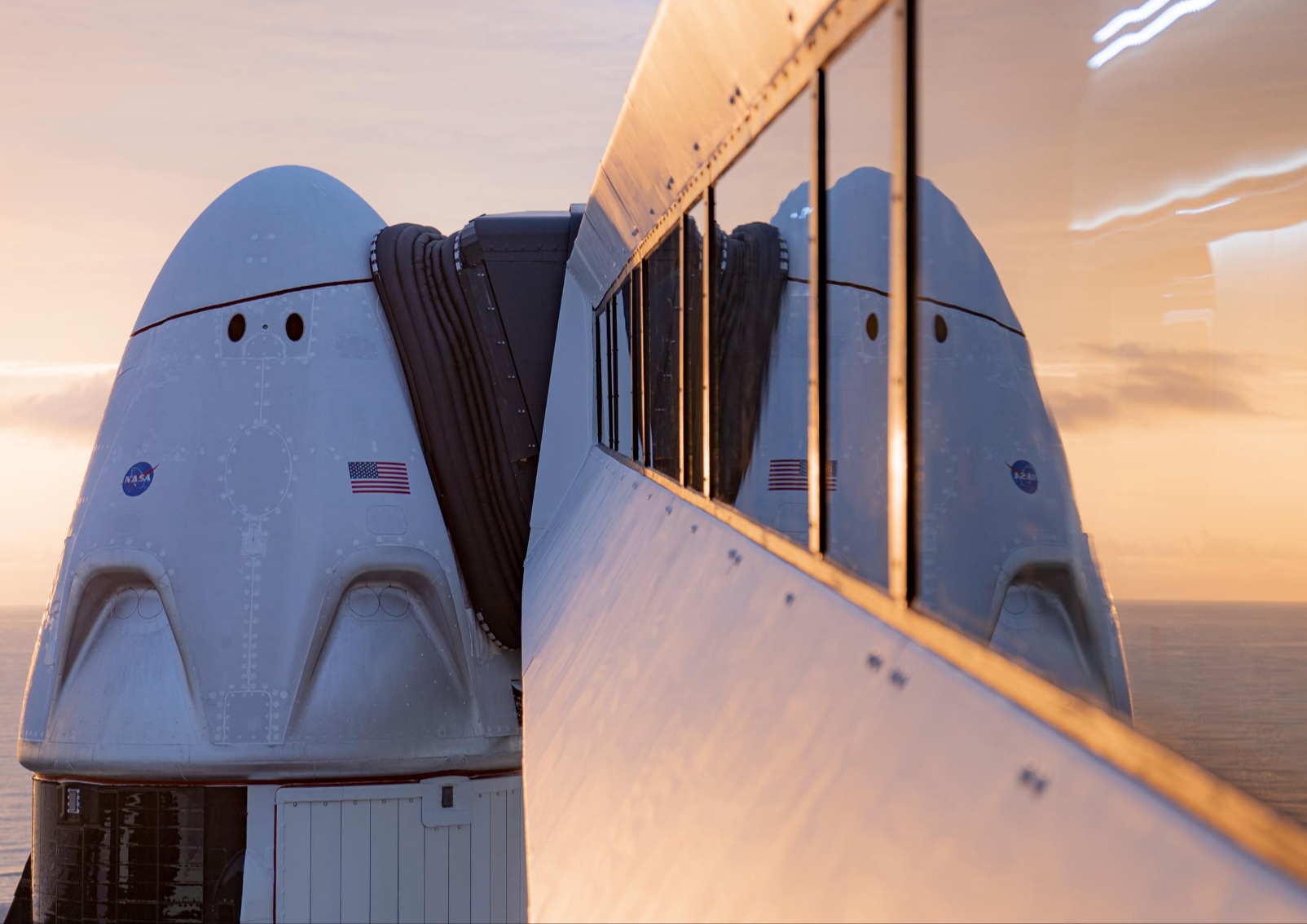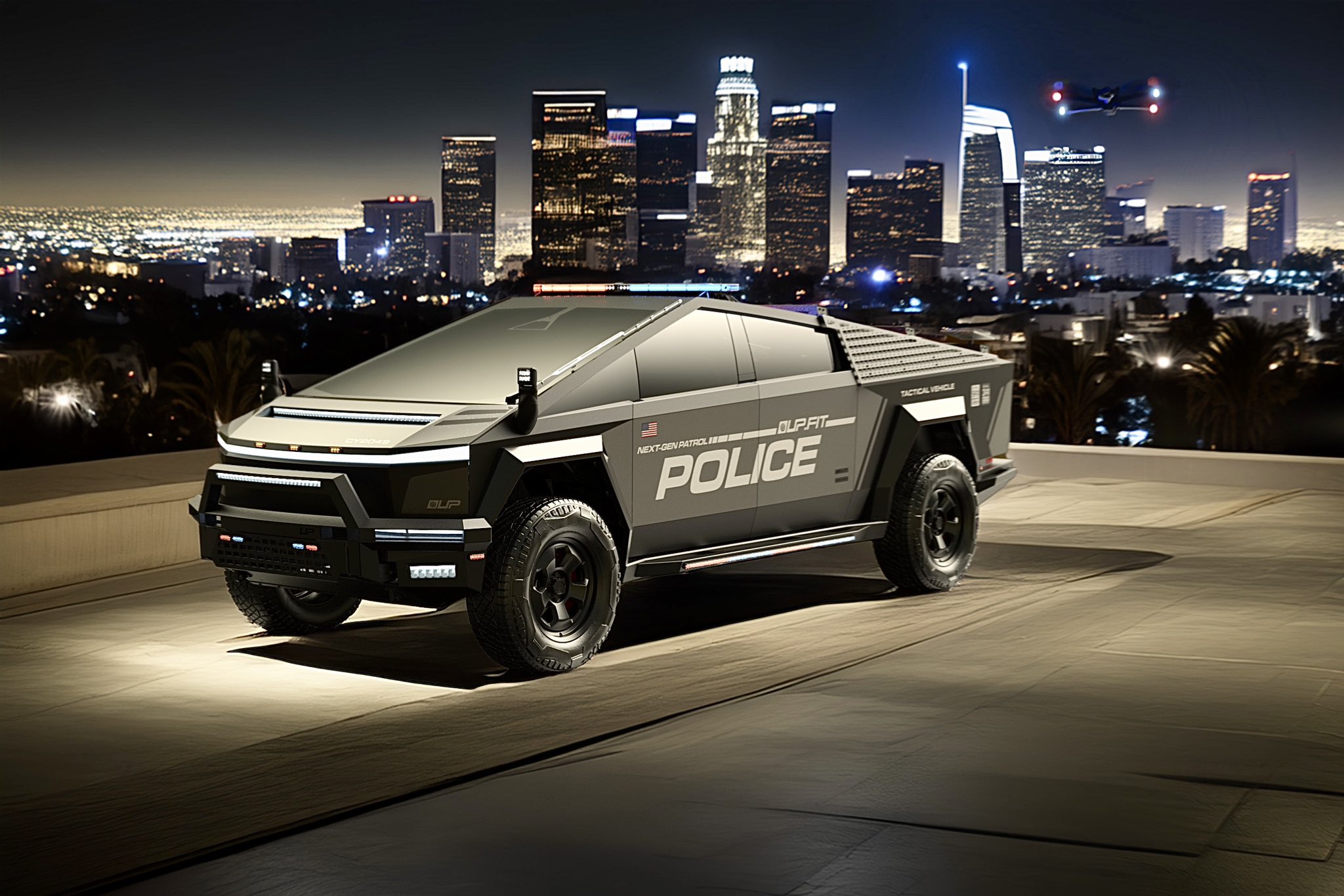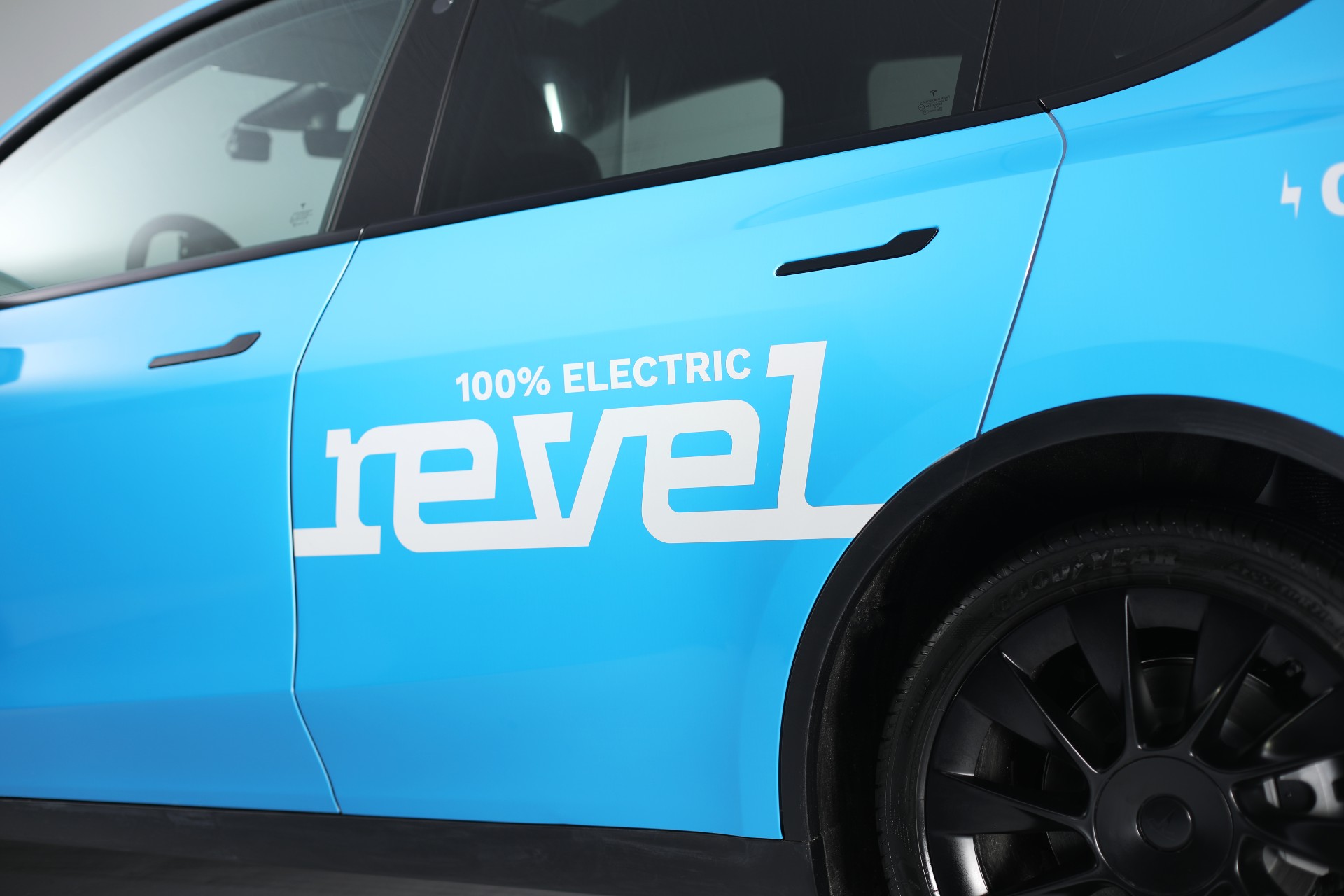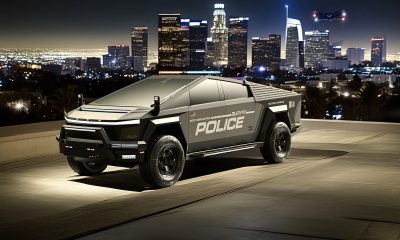This is a preview from our weekly newsletter. Each week I go ‘Beyond the News’ and handcraft a special edition that includes my thoughts on the biggest stories, why it matters, and how it could impact the future.
Earlier this week, there was plenty of talk about the Revel taxi fleet in New York City, comprised of 50 Tesla Model Y all-electric crossovers that would contribute to the ride-sharing services that the Big Apple has long been accustomed to over the past century. As the automotive sector has transitioned to a more sustainable look and feel, taxi companies are also putting their hand in the cookie jar, adding sustainable vehicles to their fleets, and taking gas-powered machines off the road.
Revel is an independent company attempting to make this happen. The company has 50 Model Y taxis ready to take on the streets of Manhattan and the other boroughs of New York. However, reports circulated earlier this week that the New York City Taxi and Limousine Commission blocked this possibility overwhelmingly with a five-to-one vote.
New York City Taxi and Limousine Commission: A Giant Game of Telephone
While the reports from various media outlets, including our own, highlighted the spectacle, which seemed to be an incredible chance of corruption, there was actually a huge misunderstanding. New York City TLC’s Deputy Chief of Public Affairs, Allan Fromberg, took some time out of a busy Thursday to talk to me, clarifying the situation that has been misconstrued since its original report.
Tesla Model Y taxi fleet successfully blocked by NY commission
After getting in touch with Mr. Fromberg on Thursday, we talked about the initial reports. “The whole narrative that Revel would have to buy 50 gas cars to then convert to EVs is just a giant game of telephone. In fact, for Revel to bring on its 50 BEVs, they would have to replace 50 existing, already-licensed vehicles, and not new vehicles.”
Initial reports indicated that TLC Commissioner Aloysee Heredia Jarmoszuk stated that congestion was why Revel wasn’t granted licenses. In fact, this is true. Revel was never required to purchase 50 gas vehicles, which didn’t make much sense from the get-go. In my initial communication to Mr. Fromberg, I stated that the contradictory nature of the TLC’s implied decision to block Revel’s Model Y fleet because of congestion, but then suggest 50 additional gas-powered vehicles needed to be purchased didn’t make much sense.
Fromberg agreed and said that this misconception was due to the aggregation of media reports looking to push out this controversial angle of the story quickly.
Mr. Fromberg then explained what the vote on Tuesday evening entailed, straight from the TLC Commissioner’s mouth.
2018 Legislation: The Taxi Cab “Cap”
Ms. Jarmoszuk said:
“First and foremost, no one and no entity has been blocked. The public meeting/vote was neither about electric vehicles nor about any particular company nor about car models. Rather, the public meeting was about vehicle licenses, which are presently capped since the market is saturated and distressed, with low performance as a result of the pandemic and previous market stressors. Presently, there are nearly 100K vehicle licenses, which is too large a supply for current passenger demand. The public meeting was about ensuring mechanisms to properly manage applications for new/additional licenses against current ridership numbers/needs.”
This is actually in reference to series of five pieces of legislation that were passed in 2018. According to the New York City Office of the Mayo, on August 14th, 2018, Mayor Bill de Blasio signed the following pieces:
144-B: Requiring the TLC to stop issuing for-hire vehicle licenses for 12 months, to study congestion and various aspects of the industry, and after the study, allows the TLC to establish vehicle utilization standards and regulate the number of for-hire vehicle licenses;
634-B: Waiving licensing fees for accessible taxi-cabs and for-hire vehicles;
838-C: Pertaining to the licensing and regulation of high-volume for-hire vehicle services;
890-B: Directs the TLC to establish rules to provide minimum payments to high-volume for-hire vehicle drivers;
958-A: Reducing penalties for unauthorized street hails.
Really, 144-B, 634-B, 838-C, and 890-B are the four pieces that are relevant to this story. In 2018, 144-B halted the licensing of any additional “For-Hire” vehicles, meaning taxis or ride-hailing vehicles. Simply put, there was an incredible number of vehicles on the streets of New York, and congestion was becoming a real issue there. The “cap” limit on the number of vehicles was enforced in 2018 and was set to last one year. Mr. Fromberg informed me that this legislation has been extended and renewed several times and is still effective to this day. Therefore, the City still will not license any additional vehicles. When one fails or loses its license, a new vehicle takes its place.
There are several other reasons for this, including fair wages for drivers and affordability for taxi companies. But, unfortunately, drivers were suffering and still are due to the COVID-19 pandemic. While many of the economic negativities are finally beginning to subside, 2020 was an ugly year for the NYC taxi sector. Many drivers weren’t making enough money to afford loan payments on medallions. Unfortunately, some of these drivers took their own lives, and it is an absolute tragedy that this occurred.
With that being said, taxi drivers are hard-working, and they deserve to make enough money to feed their families. In the 2018 passing of these legislative pieces, De Blasio said, “We’re putting hardworking New Yorkers ahead of corporations. We are taking immediate action for the benefit of more than 100,000 hard-working New Yorkers who deserve a fair wage and halting the flood of new cars, grinding our streets to a halt.” The changes increased take-home pay for drivers by approximately 20 percent on average — more than $6,000 per year.
With all of that being said, New York City is operating with a substantial number of taxis, and the TLC has granted nearly 100,000 vehicle licenses. Before any more vehicles can obtain one of these licenses, some of the current vehicles must lose their licenses through expiration or vehicle removal in a company’s fleet. When 50 licenses open up, Revel will have the ability to obtain them, giving the company full rights to operate as a ride-sharing service, just as it aims to do.
To Mr. Fromberg’s knowledge, there would be no cost for Revel to go through the normal administrative procedure to obtain the licenses.
Revel’s Response: EV Taxis are a necessity to NYC
Revel CEO Frank Reig is under the impression that the TLC is operating under “shortsighted bureaucracy and entrenched interests,” according to a Tweet from Wednesday night.
After the Tuesday hearing, Reig said:
“At today’s hearing, the Taxi and Limousine Commission offered no evidence or analysis to support ending the EV exemption. The Commissioners sat through almost 3 hours of testimony on all sides yet asked zero questions and spent zero time deliberating before making a policy decision with profound consequences. The TLC never intended to consider what drivers and New Yorkers had to say, and only cared about jamming through this vote on Primary Day with as little scrutiny as possible. This decision doesn’t change the fact that New York City needs an alternative to the predatory leasing system that exploits drivers and pollutes our environment, and Revel is exploring ways to accomplish that.”
Revel told Teslarati earlier today that it is aware that the TLC is not recommending the purchase of 50 gas-powered cars. The company is also aware that the TLC has capped the number of licenses it would issue. In order to encourage the adoption of electric cars, Revel spokespeople said that additional licenses would be given to wheelchair-accessible vehicles and EVs. A few hundred EVs have been added to the NYC Taxi fleet in the past two years, but these cars only account for .5% of the total number of For-Hire vehicles on NYC’s streets.
Tesla Model 3 wins hearts as famed NYC Taxi, picks up where Nissan Leaf couldn’t
This rule is brought up every six months and was last addressed and subsequently renewed in February. That means that it was due for review in August. However, the TLC brought the issue to light early and revoked the rule. The TLC says that if Reval wants to operate a rideshare service with its fleet of 50 Model Ys, they will have to obtain the licenses from displaced and no-longer-active taxis in the city.
Revel states that it would take two to three additional vehicles off of the street because the company will hire TLC-licensed drivers, who will no longer lease gas-powered vehicles. In addition, revel owns the vehicles, and different drivers will use the same car through different shifts, which could become a long-term advantage for the TLC as fewer cars will be on the street.
This would also line up with the Legislature items 634-B and 890-B, which would alleviate short-term leases and provide drivers with guaranteed wages, benefits, and vacation time.
The Bottom Line
The issue is this: Congestion is a real issue in the city. And while EVs only making up .5% of the total taxi fleet in the Big Apple, there is evidently no room for more vehicles, of any kind, in the City. Over time, the concentration of EV Taxis in the City that Never Sleeps will surely rise, but the existing vehicles need to be removed from the licensing pool before Revel can unleash its 50 all-electric Model Y taxis.
To summarize it easily, Fromberg said: “The TLC is fully committed to a 100% electrified future, just not at the cost of additional congestion.”
A big thanks to our long-time supporters and new subscribers! Thank you.
I use this newsletter to share my thoughts on what is going on in the Tesla world. If you want to talk to me directly, you can email me or reach me on Twitter. I don’t bite, be sure to reach out!
-Joey
On behalf of the entire Teslarati team, we’re working hard behind the scenes on bringing you more personalized members benefits, and can’t thank you enough for your continued support!
News
SpaceX’s Crew-11 mission targets July 31 launch amid tight ISS schedule
The flight will lift off from Launch Complex 39A at Kennedy Space Center in Florida.

NASA and SpaceX are targeting July 31 for the launch of Crew-11, the next crewed mission to the International Space Station (ISS). The flight will lift off from Launch Complex 39A at Kennedy Space Center in Florida, using the Crew Dragon Endeavour and a Falcon 9 booster.
Crew Dragon Endeavour returns
Crew-11 will be the sixth flight for Endeavour, making it SpaceX’s most experienced crew vehicle to date. According to SpaceX’s director of Dragon mission management, Sarah Walker, Endeavour has already carried 18 astronauts representing eight countries since its first mission with NASA’s Bob Behnken and Doug Hurley in 2020, as noted in an MSN report.
“This Dragon spacecraft has successfully flown 18 crew members representing eight countries to space already, starting with (NASA astronauts) Bob (Behnken) and Doug (Hurley) in 2020, when it returned human spaceflight capabilities to the United States for the first time since the shuttle retired in July of 2011,” Walker said.
For this mission, Endeavour will debut SpaceX’s upgraded drogue 3.1 parachutes, designed to further enhance reentry safety. The parachutes are part of SpaceX’s ongoing improvements to its human-rated spacecraft, and Crew-11 will serve as their first operational test.
The Falcon 9 booster supporting this launch is core B1094, which has launched in two previous Starlink missions, as well as the private Ax-4 mission on June 25, as noted in a Space.com report.
The four-members of Crew-11 are NASA astronauts Zena Cardman and Mike Fincke, as well as Japan’s Kimiya Yui and Russia’s Oleg Platonov.
Tight launch timing
Crew-11 is slated to arrive at the ISS just as NASA coordinates a sequence of missions, including the departure of Crew-10 and the arrival of SpaceX’s CRS-33 mission. NASA’s Bill Spetch emphasized the need for careful planning amid limited launch resources, noting the importance of maintaining station altitude and resupply cadence.
“Providing multiple methods for us to maintain the station altitude is critically important as we continue to operate and get the most use out of our limited launch resources that we do have. We’re really looking forward to demonstrating that capability with (CRS-33) showing up after we get through the Crew-11 and Crew-10 handover,” Spetch stated.
Lifestyle
EV fans urge Tesla to acquire Unplugged Performance for edge in fleet and security industry
Unplugged Performance has built a name for itself by producing performance upgrades for Tesla vehicles.

A growing number of Tesla enthusiasts and longtime community voices are calling on the electric vehicle maker to acquire Unplugged Performance, a California-based aftermarket company best known for tuning Tesla vehicles and developing specialized government fleet solutions under its UP.FIT division.
The idea was once considered a niche proposal among EV fans, but it is now gaining serious attention not just as a performance play but as a strategic move to deepen Tesla’s roots in the fleet and security industry.
A strategic fit
Unplugged Performance has built a name for itself by producing performance upgrades for Tesla vehicles, from track-optimized components to visual and aerodynamic upgrades. But in recent years, its UP.FIT division has pivoted toward a more functional future by outfitting Tesla vehicles like Model Ys for police, military, and government use.
That work has sparked growing calls for closer collaboration with Tesla, especially as the EV maker increasingly leans into autonomy, AI, and fleet services as core components of its next chapter.
“I posted this four years ago, but I think it’s more true now than ever,” wrote Whole Mars Catalog, a well-known Tesla investor and FSD Beta tester, on X. “Tesla should buy Unplugged. But not just as a Performance division. What they are doing with UP.FIT unlocks large government and commercial fleet purchases that can improve utilization.”
Tesla fans such as shareholder Sawyer Merritt echoed the sentiment, calling Unplugged a “great fit within Tesla.” adding, “They are literally located directly next to Tesla’s design studio in Hawthorne.”
Enabling the next wave
Supporters of the idea noted that integrating Unplugged into Tesla’s corporate structure could help accelerate the adoption of autonomous technologies in government sectors. With UP.FIT patrol cars already in use across some U.S. police departments, Tesla fans envisioned a future where self-driving Teslas could potentially revolutionize law enforcement, search-and-rescue, and public service logistics.
“Just imagine how autonomous patrol cars could transform policing and bring us into a safer future,” the veteran FSD tester wrote.
The benefits could also extend to Tesla’s existing consumer base. “They also have some incredible products in the works that I think will appeal to many ordinary Tesla drivers — not just those looking for performance or mods. Stuff that’s so good it should have come straight from the design studio next door,” Whole Mars Catalog noted.
Unplugged Performance, founded in 2013, shares not just a product vision with Tesla, but also geography. Its Hawthorne headquarters sits directly adjacent to Tesla’s design studio, and the two companies have maintained a close working relationship over the years. The aftermarket firm has long positioned itself as a “mission-aligned” partner to Tesla.
In response to the recent calls for acquisition, Unplugged Performance acknowledged the support from the community. “Our very existence is to support the Tesla mission with @UpfitTesla and @UnpluggedTesla,” Unplugged CEO Ben Schaffer posted on X. “We love working with Tesla and are grateful for the community’s support since 2013!”
News
Tesla debuts hands-free Grok AI with update 2025.26: What you need to know
All new Tesla vehicles delivered on or after July 12, 2025, will include Grok AI out of the box

Tesla has begun rolling out Grok, an in-car conversational AI assistant developed by xAI, to eligible vehicles starting July 12. The feature marks the most direct integration yet between Elon Musk’s artificial intelligence startup and Tesla’s consumer product lineup, offering drivers hands-free access to a chat-style companion while on the road.
Grok comes pre-installed on new vehicles
According to Tesla’s FAQ page for the feature, all new vehicles delivered on or after July 12, 2025, will include Grok AI out of the box. Owners of older vehicles may gain access through an over-the-air update, provided their vehicle meets a few hardware and software requirements.
Specifically, Grok is currently only supported on Tesla models equipped with an AMD infotainment processor and running vehicle software version 2025.26 and higher. Compatible models include the Model S, Model 3, Model X, Model Y, and Cybertruck. A Premium Connectivity subscription or active Wi-Fi connection is also required.
Tesla notes that additional vehicle compatibility may arrive in future software updates.
Grok’s features and limitations for now
Drivers can engage with Grok using the App Launcher or by pressing and holding the voice command button on the steering wheel. Grok is designed to answer questions and hold conversations using natural language, offering responses tailored to its chosen personality—ranging from “Storyteller” to the more eccentric “Unhinged.”
For fun, Tesla posted a demonstration of Grok likely running on “Unhinged” talking about what it would do to Optimus when they are on a date, much to the shock of the humanoid robot’s official social media account.
It should be noted, however, that Grok cannot currently issue commands to the vehicle itself, at least for now. Traditional voice commands for tasks like climate control, navigation, or media remain separate from Grok as of writing.
The feature is being released in Beta and does not require a Grok account or xAI subscription to activate, although that policy may change over time.
Grok privacy and in-car experience
Tesla emphasizes that interactions with Grok are securely processed by xAI and not linked to a user’s Tesla account or vehicle. Conversations remain anonymous unless a user signs into Grok separately to sync their history across devices.
Tesla has also begun promoting Grok directly on its official vehicle webpages, showcasing the feature as part of its in-car experience, further highlighting the company’s increasing focus on AI and infotainment features on its all-electric vehicles.
-

 Elon Musk2 weeks ago
Elon Musk2 weeks agoTesla investors will be shocked by Jim Cramer’s latest assessment
-

 Elon Musk2 days ago
Elon Musk2 days agoxAI launches Grok 4 with new $300/month SuperGrok Heavy subscription
-

 Elon Musk5 days ago
Elon Musk5 days agoElon Musk confirms Grok 4 launch on July 9 with livestream event
-

 News1 week ago
News1 week agoTesla Model 3 ranks as the safest new car in Europe for 2025, per Euro NCAP tests
-

 Elon Musk1 week ago
Elon Musk1 week agoxAI’s Memphis data center receives air permit despite community criticism
-

 News2 weeks ago
News2 weeks agoXiaomi CEO congratulates Tesla on first FSD delivery: “We have to continue learning!”
-

 Elon Musk2 weeks ago
Elon Musk2 weeks agoTesla scrambles after Musk sidekick exit, CEO takes over sales
-

 News2 weeks ago
News2 weeks agoTesla sees explosive sales growth in UK, Spain, and Netherlands in June


















